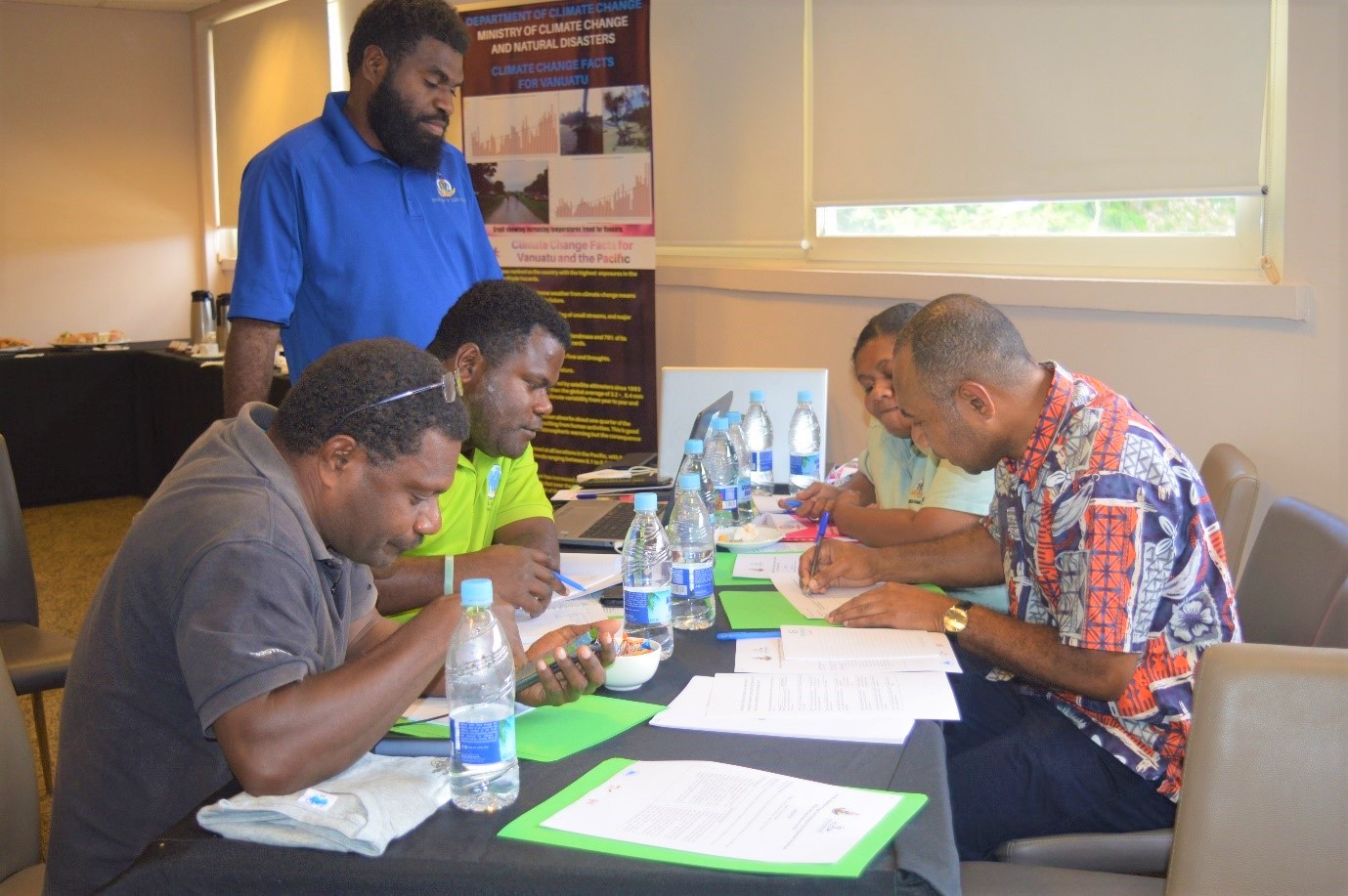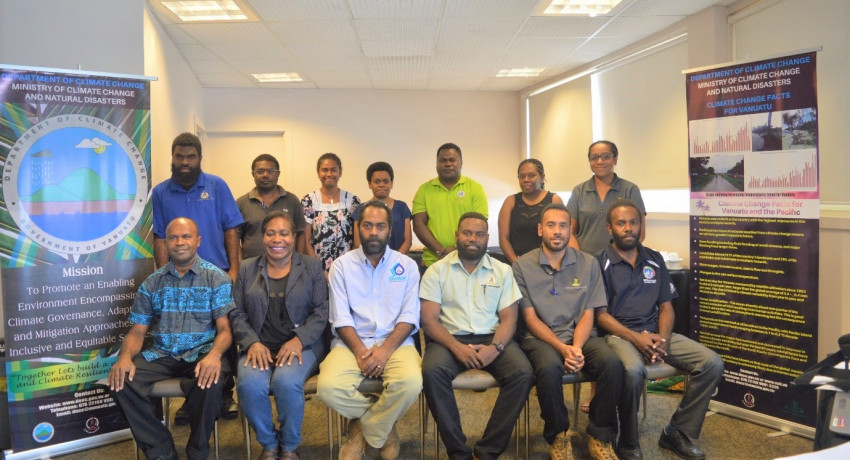The event provided an important mechanism through which government agencies, civil society, research and other non-government stakeholders discussed and prioritized key issues related to agriculture and water sectors - the two key priority sectors under Vanuatu's National Adaptation Program of Action - Mr. Mike Waiwai, Director, Department of Climate Change Vanuatu
The Ministry of Climate Change in Vanuatu held a two-day workshop from 22 to 23 October this week to gather inputs from stakeholders towards the development of the national quantifiable adaptation targets and indicators for its water and agriculture sectors.
The workshop aimed to develop an initial list of targets and indicators to be further validated in a follow-up workshop in November this year. It is developed ultimately to be part of Vanuatu’s enhanced Nationally Determined Contributions (NDCs) which will be submitted to the United Nations Framework Convention on Climate Change (UNFCCC) later in 2020 as Vanuatu’s obligation to the UNFCCC.
The Director; Department of Climate Change, Mr. Mike Waiwai said the two-day event was a critical step in gathering the much-needed inputs from stakeholders, which forms the narrative of the adaption chapter for Vanuatu’s enhanced NDCs.
“The event provided an important mechanism through which government agencies, civil society, research and other non-government stakeholders discussed and prioritised key issues related to agriculture and water sectors – the two key priority sectors under Vanuatu’s National Adaptation Program of Action,” said Mr. Waiwai. “We are very glad to be working with the Deutsche Gesellschaft für Internationale Zusammenarbeit (GIZ) through the Regional Pacific NDC Hub on this activity and look forward to formulating a quality output from this workshop.”
The intention of this project is to strengthen the existing content on adaptation initiatives in Vanuatu’s NDCs by developing quantifiable targets for adaptation, which will be communicated to the UNFCCC at the end of this year. This includes developing quantified climate change adaptation targets in the two priority sectors of agriculture and water.
Climate change adaptation targets and indicators serve an important function for monitoring and evaluating (M&E) the national adaptation progress and achievements.
“It is important that quantifiable adaptation targets and indicators in Vanuatu’s NDC also align with pre-existing national and regional frameworks, policies and processes. This will support national reporting towards the Sustainable Development Goals (SDGs) as well as the Sendai Framework for Disaster Risk Reduction (SFDRR),” Mr. Waiwai said.
“It is envisaged that the targets and indicators that will be developed for the water and agriculture sector are applicable and transferrable to other sectors”.
Stakeholders attending the workshop were able to discuss and reflect on the gaps in terms of the reporting systems that will enable better coordinated approach to monitor and evaluate the implementation of climate change adaptation initiatives in Vanuatu.
The stakeholders attending the workshop were from the Department of Water Resources (DoWR), Department of Strategic Policy, Planning and Aid Coordination (DSPPAC), Department of Energy (DoE), Department of Climate Change (DOCC), Department of Land, University of the South Pacific (USP), NAB secretariat, Live and Learn and Action Aid.
The quantifiable adaptation workshop was hosted by the Ministry of Climate Change and funded by Deutsche Gesellschaft für Internationale Zusammenarbeit (GIZ) through the Regional Pacific NDC Hub, which works to harness the might of Pacific nations in reviewing, enhancing and implementing its nationally determined contributions. The Hub is funded by the generous support from the Governments of Germany, New Zealand, Australia and United Kingdom.



